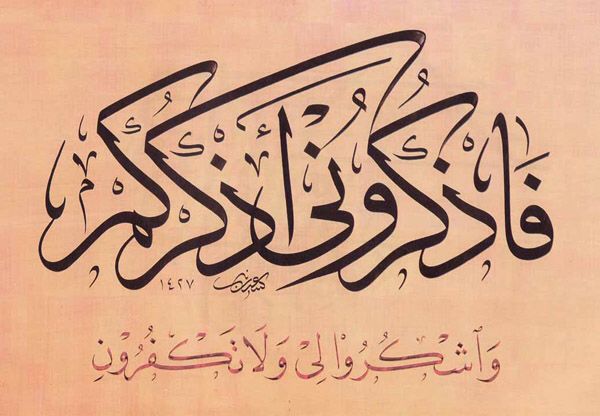بسم الله الرحمن الرحيم
REFERENCE: https://haq2012.wordpress.com/2013/03/25/imam-ibn-taymiyyahs-stance-on-the-usage-of-weak-ahaadith/

All praise for Allah, may peace and blessings be upon our noble master Mohammed sallalaho alayhi wasallam, upon his pure family his noble companions and all those who follow them until the day of judgement.
Respected readers, what I would like to discuss here inshallah is an issue which causes a lot of controversy, that is the issue of usage of weak ahaadith. We have some people who go the extreme of saying that weak ahaadith should be rejected entirely. I will state the obvious here, and mention that other that the sahihayn (Bukhari and Muslim) every other book of hadith, be it the sunan of Imam Tirmidhi, Imam Abu Dawud, Nasai, Ibn Majah, Bayhaqi, the mustadrak of Imam Haakim, musannaf of Imam ibn Abi shaybah and others all contain some weak as well as sahih ahaadith.
What we must understand is that there is a difference between a weak and a fabricated hadith but unfortunately and sadly we have certain ignorant people who don’t differentiate between the two. They treat a weak hadith like a fabricated hadith and totally disregard it. I am not saying for a second that fabricated ahaadith should be entertained, we all know the severity of attributing a lie to the messenger of Allah sallalaho alayhi wasallam who himself said ‘whoever attributes a lie to me has reserved his space in the fire of hell’ (Bukhari).
Some people who are even regarded as scholars have this attitude that weak ahaadith should not be used at all, and if this approach was adopted then the majority of the books of hadith would be rendered useless and only Bukhari and Muslim could be applied thus making life extremely difficult.
The majority view of the ulema is that a WEAK hadith is permissible for usage in non-fiqh issues. The following are some great scholars who hold this view : Imam Nawawi, Ibn Salah, Sufyan Thawri, Ahmed bin Hanbal, Ibn uyaynah, Ibn Mubarak, Ibn mahdi, ibn ma’een, khateeb Baghdadi, Bukhari, mullah Ali Qari, ibn Hajr al Asqalani, ibn Taymiyah, ibn Qayim, imam Sakhawi, abu Dawud.
Even Imam Bukhari RA himself has compiled weak narrations in his book ‘Al Adab Al Mufrad’ which shows that he accepted weak narrations in regards to virtues of good deeds, so we can see here that the majority of muhaditheen accepted the usage of weak ahaadith and did not have this attitude that the salafis of today have.
I will now present work from none other than imam Ibn Taymiyah RA from his famous book ‘al qaedah jaleelah fit tawassul wal waseelah.’ The reason I chose to use Ibn Taymiyah RA on this occasion is because those people today who like to reject weak ahaadith and condemn others for using them are those who use Ibn Taymiyah RA as a reference and would always accept any ruling of his without hesitation.
The imam states:
“But Ahmad ibn Hanbal and other scholars permitted the narration [of hadith] regarding the virtues of good what is not sure as long as it is not known that it is a lie.” [laakinna Ahmad ibn Hanbal wa ghayruh min al-‘ulama jawwazu an yurwa fee fada’il al-‘aamal maa lam yu’lam annahu thaabit idha lam yu’lam annahu kadhib.]
Ibn Taymiyya goes into a full chapter of discussion of this subject from here, Chapter 8 of “al-qaida al-jaleela fit-tawwasuli wal-waseela“, where he presents the views of the majority of the ‘ulama of Islam and he presents his own views of the subject. And here we will examine this in detail.
To continue, Ibn Taymiyyah RH says, in para 478:
“and that is the action which is known to be lawful with a shari’ah evidence, and there has been narrated in its virtue hadith that is not known to be a lie, it is possible that the reward will be true and none of the Imams have said that it is permissible to consider something required [waajib] or recommended [mustahabb] by way of a weak hadith, and whoever said so differed from the consensus [ijma’a].”
So here we see that Ibn Taymiyah RA is explaining that if there is a hadith, even though it has not been judged to be authentic, if it encourages what is known as a good deed in Islamic shari’ah, something of virtue, a praiseworthy action, or idea, then it is fully acceptable to refer to such a hadith as an encouragement for that deed.
And here also, Ibn Taymiyah RA refers to the ijma’a, the consensus, which is a clear reference to the concept of ijma’a of scholars of Islam as being a fully accepted concept and one which *he* accepts. And this is a clear proof that Ibn Taymiyah RA, though he considered himself a mujtahid mutlaq, capable of independent reasoning, nevertheless depended on the consensus [ijma’a] of scholars as a proof for the opinions he considered acceptable. And this is the position of Ahl as-Sunnah wal-Jama’at.
Then he continues in para 479:
“And just like it is not permissible to forbid something without a shari’ah evidence, [daleel shar’ee] but if it something is known to be forbidden and a hadith has been narrated in warning the one who commits such an action, and it is not known that it is a lie, it is permissible to narrate it. And it is permissible to narrate it in the manner of encouraging and discouraging [at-tarheeb wat-targheeb] what is not known that it is a lie. but in what is known that Allah has encouraged or discouraged with another evidence besides this [weak] hadith whose authenticity is unknown [majhoul haaluh].”
So from this we see that Ibn Taymiyah RA is using the weak hadith [ahadith da’eef], to discourage people from doing an evil deed, as long as this deed is known to be forbidden in the shari’ah. If the deed is forbidden in the shari’ah, it is acceptable to use a hadith whose authenticity is unknown, as long as the hadith is known not to have been an actual lie. This principle is acceptable, in anything that it is known that Allah expressed its forbiddance. Ibn Taymiyah RA continues to explain this concept in para 480:
“This is like the [situation] of the Isra’iliyyaat [stories related by the Jews]. It is permissible to be narrated as long as we know that it is not a lie, for encouraging or discouraging in what we know that Allah has ordered in our law [shar‘] or forbade in our law [shar‘].”
Here we see that Ibn Taymiyah RA is not only accepting that the weak are acceptable in the case of encouraging good deeds and discouraging evil ones, but he is showing clearly that he accepted the use of Isra’iliyyaat, stories related from the Jews, which many Salafis reject today as unacceptable. And this is verified in the hadith of the Prophet (saws), “narrate from the hadith of Bani Isra’il and there is no harm in doing it.”
So respected brothers and sisters, we see from the above evidences that Imam Ibn Taymiyah RA himself accepted the usage of weak ahaadith, I ask those salafi brothers who love to insult the likes of hazrat Moulana Zakariyyah RA because of his usage of weak ahaadith, will you now refute and condemn your own imam on the same grounds?
May Allah give us all the ability to understand the deen in its entirety, Ameen.
 I have a question regarding the text Faza’il – e – A’maal by
I have a question regarding the text Faza’il – e – A’maal by
Shaikhul Hadith Maulana Muhammad Zakariyya Kaandhlawi. From many I’ve heard that this text contains many weak hadiths and should not be read for the hadiths all are not saheeh. Is this correct? If so, please explain if this text would be appropriate to read and are the hadiths with strong chains?
 Assalamu alaykum
Assalamu alaykum
In the name of Allah most Gracious Most Merciful.
Along with many sahih hadiths, Fada’il A’mal is also known to contain a number of weak hadiths. In fact many of the great hadith collections contain weak hadiths. This is the case with Sunan al-Tirmidhi, Ibn Maja, al-Bayhaqi, al-Mustadrak of Imam Hakim, Mishkat al-Masabih, al-Tarqhib wa al-tarhib, etc. Besides these, popular works such as the Ihya ‘ulum al-din of Imam Ghazali is one in which Allama ‘Iraqi has judged many hadiths to be weak. However, these works have been overwhelmingly accepted by the majority of traditional scholars of Islam throughout the centuries. Furthermore, despite the rigorous authentication of the Sahih of Imam Bukhari, his other works such as al-Adab al-Mufrad and Juz’ al-qira’a khalf al-imam contains many weak narrations.
What we understand from this is that it is not a crime to relate weak hadiths, as some like to advocate. Individuals have risen in the last century who have attempted to “purify” the books of the pious predecessors by sifting the weak hadiths from the authentic (many a time with great injustice) and have published the classical collection under new titles such as Sahih Sunan al-Tirmidhi, Sahih Sunan Ibn Maja, etc.
The approach of the classical scholars was not such. It was accepted among them that works on the subject of virtues and fada’il did not have to meet the same levels of authenticity as was needed in discussions on the belief system of Islam or the laws and rulings of the lawful and unlawful.
Great hadith experts such as Imam Ahmad ibn Hanbal, Ibn al-Mahdi, ‘Abdullah ibn al-Mubarak said, “When we narrate in regards to the lawful [halal] and unlawful [haram] we exercise extreme strictness and when we narrate in regards to virtuous and the like (stories and narratives) then we are more lenient.” (See Suyuti’s Tadrib al-rawi).
We learn from this statement that the scholars were more relaxed in the case of using weak hadith in virtues, but were very strict when it came to aspects of belief or fiqhi rulings. There were also other conditions for accepting weak hadith. For instance, the weakness should not be extreme that it is bordering on fabrication or the hadith should not be a spurious one. Likewise the weak hadith should not contradict an established principle of Shari’a or go against the spirit of the teachings of Islam (See Tadrib al-rawi).
If one takes the approach of shunning every book that contains weak hadiths would be left with very few books to benefit from. This would create great difficulty in regard to the din. Imam Tirmidhi has demonstrated in his Sunan as to how so many fiqhi rulings have been based on not-so-strong narrations.
The Fada’il A’mal is not a book of juristic laws. it is a book of virtues and as such there is no doubt that one can read it and practice on the virtues mentioned therein, even if they are from weak hadiths. Allah has granted this book such a widespread popularity that it is difficult in many countries to find a masjid without a copy. Many have benefited and softened their hearts for the remembrance of Allah and other such virtuous acts by reading it and the Fada’il Sadaqat by the same author.
The author Shaykh Zakariya Khandelwi taught the Sahih al-Bukhari for numerous years and spent his entire life in the service of the hadith of the Messenger (upon him be peace). His works include the editing of the Badhl al-Majhud (Arabic commentary of Sunan Abi Dawud), al-Hall al-Mufhim (Arabic commentary of Sahih Muslim), and al-La’ali al-Dirari (Arabic commentary of Sahih al-Bukhari); then the Awjaz al-Masalik is his Arabic commentary of the Muwatta of Imam Malik (Dar al-Fikr, Syria edition over twenty volumes), and the Khasa’il al-Nabawi, his Urdu commentary of the al-Shama’il al-Muhammadiya of Imam Tirmidhi. Besides these he has authored numerous other works in Urdu. He passed away in Madina Munawwara on Monday the 1st of Sha’ban 1402 corresponding to 24th May 1982.
Wassalam
(Mufti) AbdurRahman ibn Yusuf Mangera (hafidhahullah)